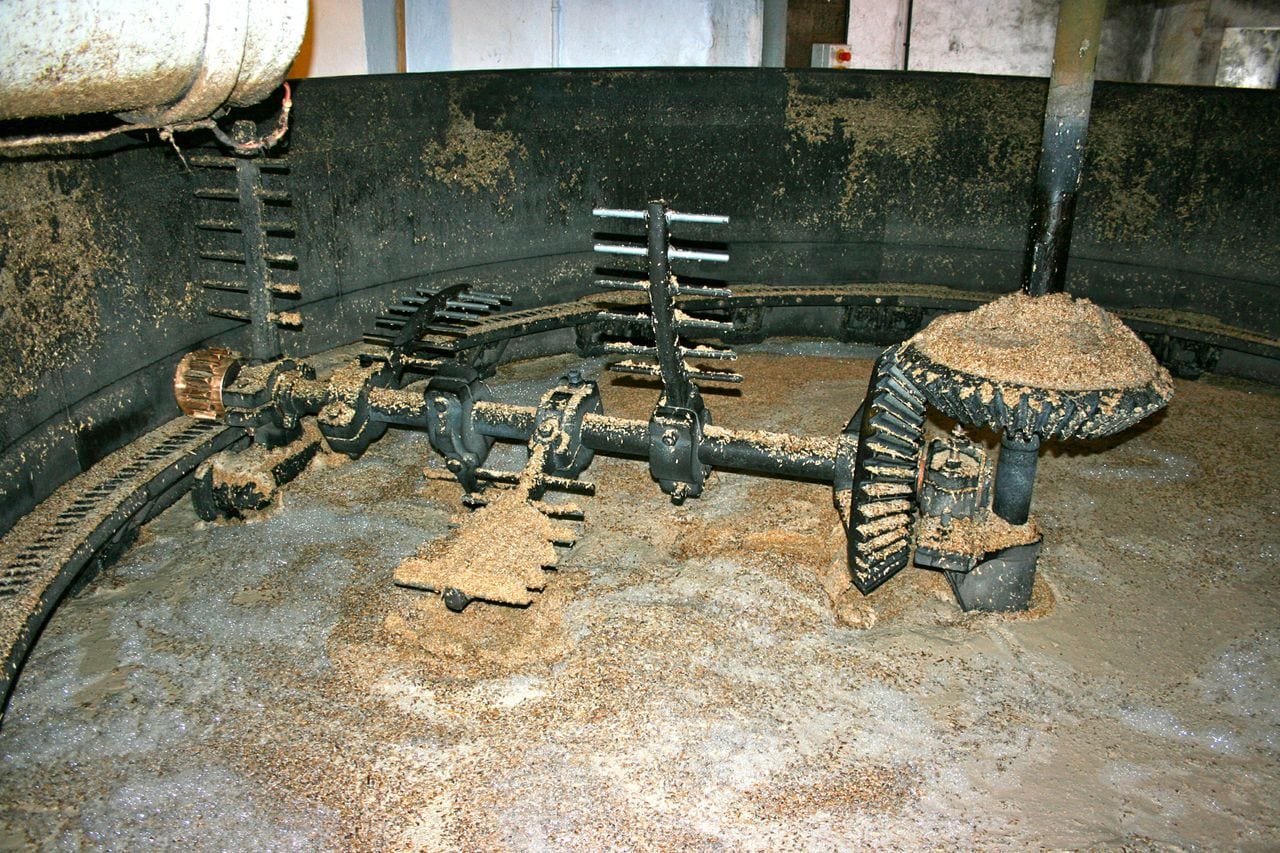The mash tun is the vessel in which crushed barley (grist), or other grains (like rye or corn, in case of Bourbons or whiskeys) and hot water are mixed in order to extract the soluble sugars from the barley. It typically will be round, topped with a copper or stainless steel dome, although there also are versions that do not have a cover (like the one at Bruichladdich). The base of the tun contains small openings, sort of like a sieve, which can be used to extract the sugary water (now called wort) while ensuring the grain stays behind.
The mashing process
During the mashing process, water of increasing temperatures will be added to the grist in 3 or 4 phases. The first phase, water at a temperature of roughly 64 degrees Celsius (147 Fahrenheit) is used for a period of some 30 minutes. After the 30 minutes, the water is drained (and stored in the worts receiver (or underback)), after which a second batch of water at a temperature between 70 and 75 degrees Celcius (168 – 167 Fahrenheit) is added. The water is given time to absorb the sugars for a while again, and then drained and added to the initial batch collected in the worts receiver. The remainder of the corn is then removed and usually sold off as cattle feed.
There are several types of tuns in use, and we will discuss them in a bit more detail.
Traditional mash tun
The traditional mash tun had a rotating arm in the middle, equipped with rakes that stir up the grain in the bottom of the tun to help extract the sugars and make it easier to drain the waters

The Traditional Mash Tun at Springbank
Semi-lauter Mash tun
From the 1970s and onward, the traditional vessels started getting replaced with mash tuns that sport long vertical iron knives, themselves equipped with small blades (or fins). In a semi-lauter version, the knives are rotated around in the mash tun by a spindle in the middle. The blades are able to disturb the malt much more than the traditional rakes, and thus increase the speed of the mash process.
Full lauter mash tun
The Full lauter mash tun is very similar to the semi-lauter version, but here, the knives don’t just rotate, but can also move up and down in order to further stir the mix.

The mash tun at the Tomatin distillery
Some manufacturers of mash tuns include the now closed Newmill Engineering (who made the mash tuns at Ardbeg, Speyside distillery, Glenlossie, among others) and German Steinecker (who fitted Craigellachie, Aberlour, Glen Elgin and others).